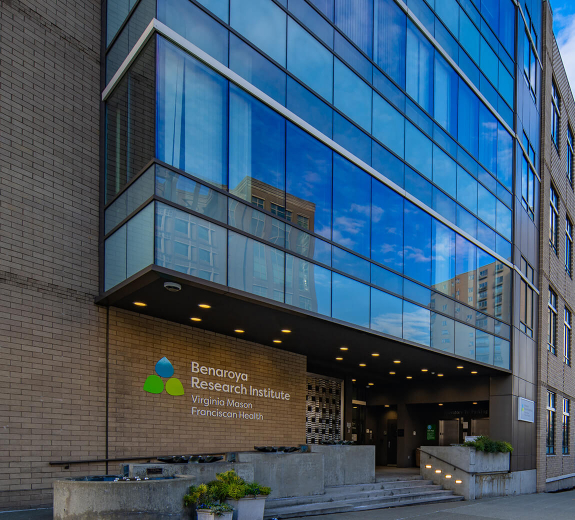In an article published today in the journal Immunity, Benaroya Research Institute (BRI) scientists created a high-throughput approach that enables researchers to conduct antigen-level studies of the immune system’s interactions with the intestinal microbiome. This is the first-time researchers have been able to identify antigens from the bacteria in the gut microbiome and then study, at the cellular level, the antibody producing B cells that interact with them to regulate the gut’s tolerance of and interaction with these commensal (symbiotic) bacteria.
Commensal microorganisms that inhabit our gut and skin, as well as other mucus and epithelial barrier tissues, play an important role in directing our immune responses to potential infections from pathogens as well as maintaining homeostasis and regulating inflammation and autoimmunity. However, the mechanisms involved in the regulation of B cells interactions with commensal microbes are poorly understood, in large part due to a lack of tools for identifying the microbe-specific B cells of interest.
The research team led by Drs. Sheenam Verma and Oliver Harrison used phage display, a high-throughput screening technology, that allowed them to screen millions of antigens from Segmented Filamentous Bacteria (SFB), a typical colonizer of the gastrointestinal tract. Serum from SFB-colonized mice was used to identify the SFB epitopes recognized by IgA and IgG antibodies. This screen identified 33 protein SFB epitopes that were recognized by host B cell produced antibodies. It was determined that these epitopes were from 4 SFB-derived proteins.
The authors next generated B cell tetramers containing the majority of one of the SFB-derived proteins (SFB3340). Tetramers are powerful tools that enable the analysis of antigen-specific immune cell properties. Combining this tetramer tool and using a bacterial protein that was found to interact with B cell antibodies in the phage screen, researchers were able to identify commensal microbe-specific B cells.



